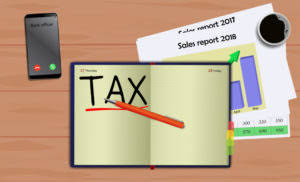
Accounting software is a computer program that helps businesses track income and expenses. The software can also be used to generate reports, such as profit and loss statements and balance sheets. Most accounting software programs include features for invoicing, tracking payments and managing inventory. Xero is one of the most popular accounting software for small businesses. The Early plan costs $13 per month and includes basic features such as bank account reconciliation, bill and receipt capturing and short-term cash flow and business snapshot. While much of your daily accounting work probably involves paying bills, sending invoices, and recording payments, you also need to keep a close eye on your bank and credit card activity.
- Accounting software makes financial tracking accessible to non-accountant business owners.
- Instead, interested parties should schedule a free demo with a sales representative.
- In many cases, they’re offered in the context of a “freemium” model — they essentially provide the bare essentials as a preview for a fully fleshed-out application.
- However, for the most part, desktop software is in the process of being phased out.
- How much time would you save if you didn’t have to manually enter, code and verify each business banking and credit card transaction to keep your books accurate and up to date?
- For businesses with over $200,000 of monthly expenses, this might offer the type of customization you’d need.
This helps inform your business decisions and gives you time to do what you do best. There are several key rules of bookkeeping to keep in mind, but one of the most important is regarding debits and credits. In other words, debit is all incoming money, while credit is all outgoing money. The most common mistakes are mixing personal and business finances, leaving taxes to the last minute, missing out on deductions, and not retaining records for long enough.
Difficulty Migrating Your Data
Despite these challenges, accounting software can be a valuable tool for businesses of all sizes. When choosing accounting software, it’s important to consider the needs of your business and compare different features to find bookkeeping solution the best fit. When choosing the best accounting software for your business, there are several factors you should consider, including price, features, the type of software you need and what your company’s specific needs are.

How often are you looking at your total current income and total current expenses? Leveraging bookkeeping services allows you to look at your income and expenses in real-time frequently. Having access to robust reports and financial statements allows you to make better decisions for your business leading to an increased ROI from investing in online bookkeeping services. Bookkeeping services can https://www.bookstime.com/articles/what-is-a-professional-bookkeeper also help small business owners save more through tax preparation and tax filing. We recommend FreshBooks especially for sole proprietors and companies with perhaps an employee or two—though it’s capable of handling more. Very small businesses could use it for basic money management, like sending invoices, monitoring financial accounts, accepting payments, and tracking income and expenses.
TrulySmall Accounting
Sage 50cloud Accounting is a powerful piece of software, so why didn’t it receive a higher rating? A dated interface, lack of mobile access, and the requirement to install the software locally keep it from receiving a higher score. Sage Business Accounting starts at just $10, which is perfect for freelancers and self-employed business owners with no employees. But to get the most out of Sage Business Cloud Accounting, you really need the $25-a-month plan. In contrast, the pricier plan includes more thorough reporting, unlimited users, and cash flow forecasting. What’s more, even the best small business bookkeeping and accounting software is only as reliable as the information you enter.